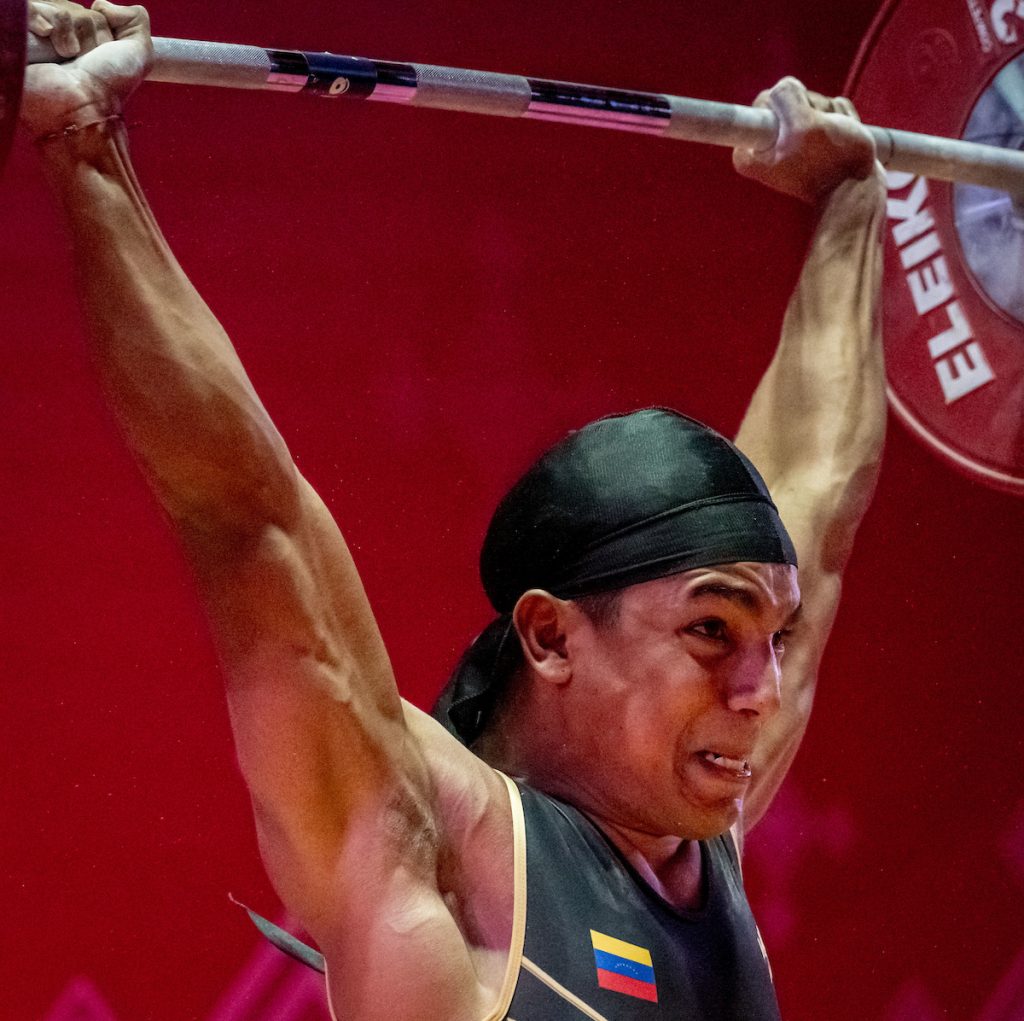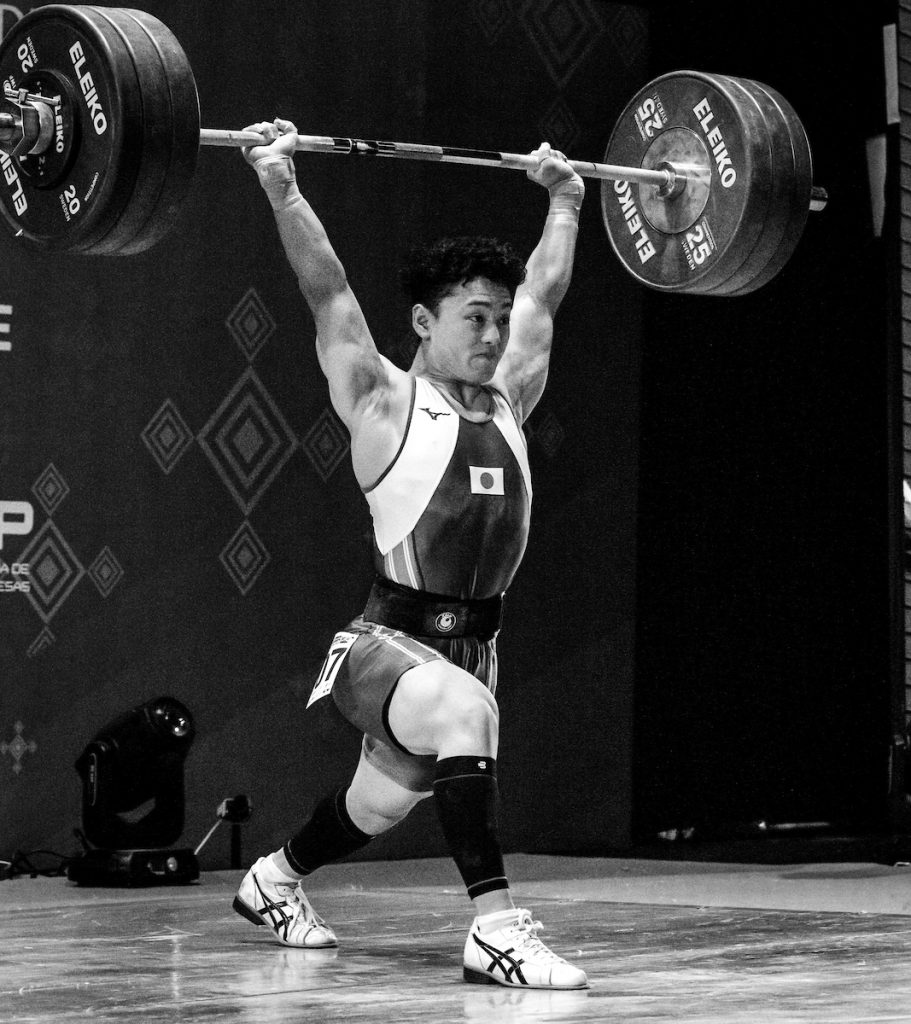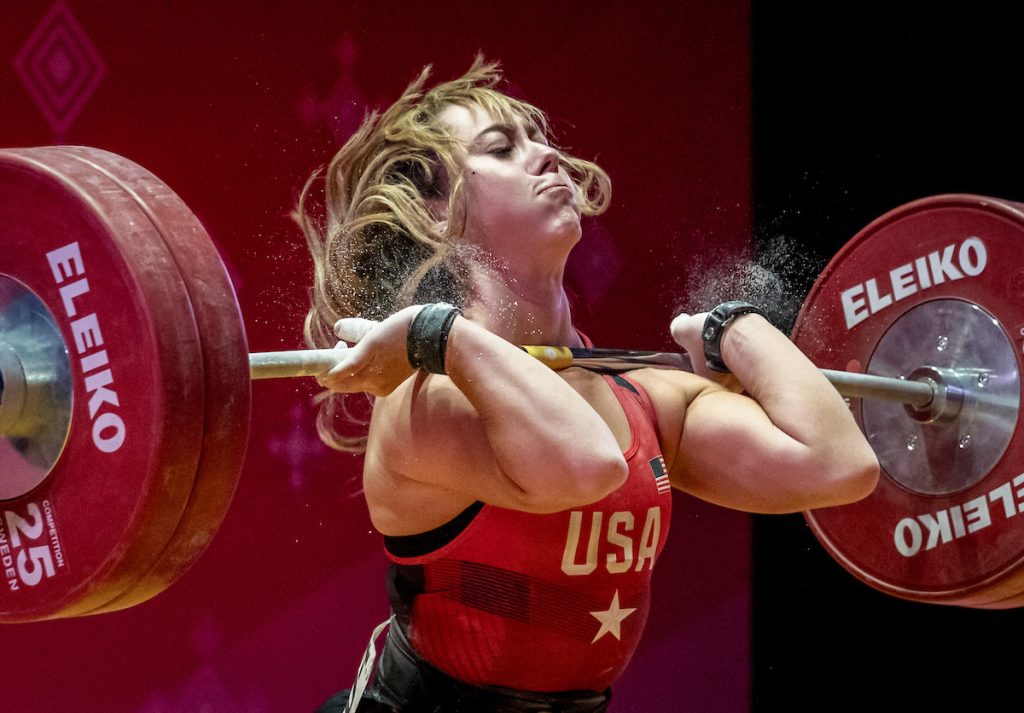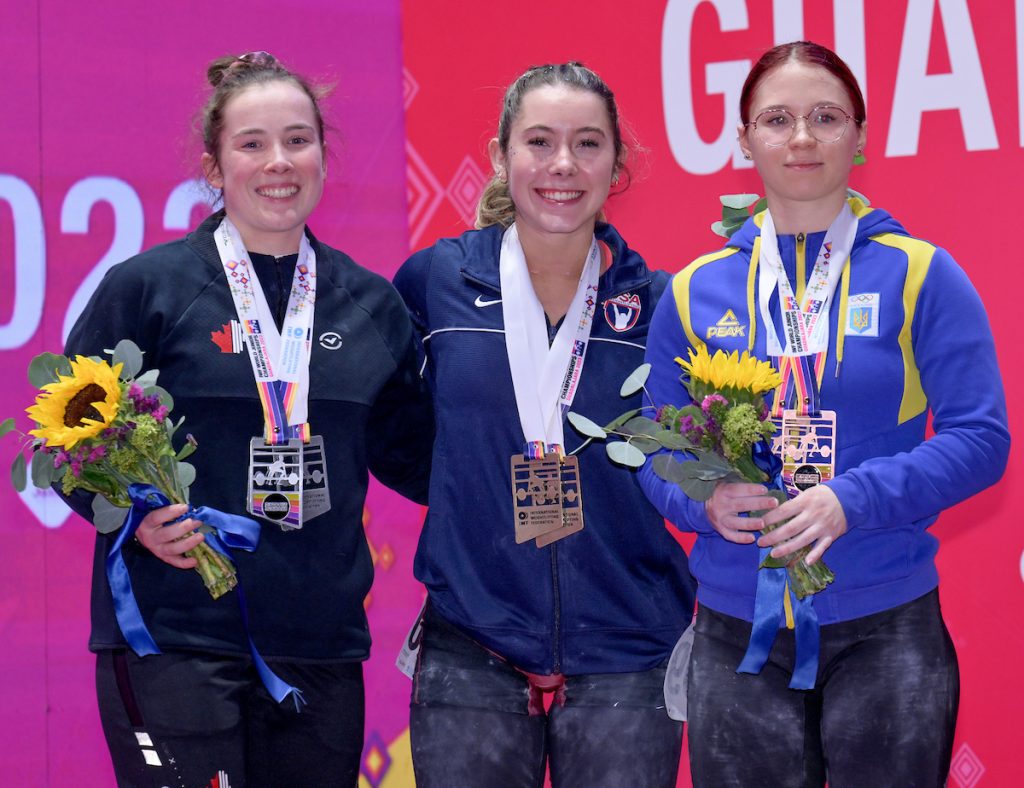Guadalajara, Day 4: Venezuelan wins despite travel trouble – and Canadian teen has a day to remember
Reinner Arango, whose journey from Venezuela was delayed by a day, was standing on top of the podium eight hours after he landed in Mexico. He claimed the best result of his career by winning the men’s 73kg title at the World Junior Championships in Guadalajara.
There was drama, too, in the other event on day four. Katie Estep became the United States’ second champion of the week and the Canadian B Group lifter Charlotte Simoneau had a day she will never forget in the women’s 64kg.
Two Venezuelan women in that session had travelled with Arango and had to head straight from the airport to weigh in. When they missed a connecting flight, the three athletes had to stay overnight in Cancun and fly to Guadalajara on Saturday morning. Claudia Rengifo and Keily Silva, aged 16 and 17, finished eighth and 11th despite their lack of preparation.
 Reinner Arango (VEN)
Reinner Arango (VEN)
Arango, 19, made five good lifts in his 141-176-317, a 16kg improvement on the total that won him the Pan American junior title in May. He was more interested in talking about his future than the troubled journey.
“This is definitely the best performance of my career,” he said. “I was a 67 for a very long time before I moved up at the Pan American juniors, and when I made 301kg there it was my first try at the new weight. Since then I’ve done a lot of hard work in training and I’m more used to the new weight.
“Now I want to be part of the elite in senior competitions. I might still be a junior but I want to go in and beat the seniors – I can do it.”
Europe had six of the eight A Group athletes, including five of the top six finishers at this year’s European Junior Championships. But the only non-Europeans in the field finished first and second, Arango and the Japanese debutant Rakuei Azuma, who made an impressive 140-176-316. Azuma got his final attempt at 178kg above his head but lost the lift backwards.
 Rakuei Azuma (JPN)
Rakuei Azuma (JPN)
Snatch winner Ismail Jamali from Spain was third on 145-170-315 ahead of the European champion Tiberiu Donose from Romania, who was second in snatch and fourth on total.
The United States went top of the medals table when Estep won. The target to beat for her and four other gold medal hopefuls was 213kg, set by 18-year-old Simoneau three hours earlier in the B Group. Simoneau’s 95-118-213 was 28kg higher than her entry total, 23kg up on her previous international best, and her first six-from-six at this level.
 Katie Estep (USA)
Katie Estep (USA)
She was asked to stay at the venue until the end of the A session because she was in contention for the top three, and spent the next few hours watching the men’s 73 B Group, then the 64kg A Group, nervously wondering where she might finish. It was so emotionally draining that by the end of the session, and also after the medal ceremony, Simoneau was in tears.
“It feels so special to win any medal,” said Simoneau. “I was very emotional. I will have a good sleep tonight and when I get home I’m going to celebrate with my family.”
With three lifts to come in snatch, Simoneau was in with a chance of gold but also at risk of finishing out of the medals. The Individual Neutral Athlete Katsiaryna Yakushava, from Belarus, went into the lead, then the other two – Olha Ivzhenko from Ukraine and Tugs-Ederne Otgonchimeg from Mongolia – failed and Simoneau was left in second place at halfway.
With Estep and her USA team-mate Sophia Shaft also in contention there was only 3kg between the top six in snatch. It was just as tense during the last few clean and jerks. Yakushava missed all three attempts and failed to make a total, Otgonchimeg missed her last two, and at the finish there were three contenders for gold on total – Ivzhenko, Estep, and Simoneau.
 Women’s 64kg podium
Women’s 64kg podium
Ivzhenko did not go high enough to overtake Simoneau, aiming instead for clean and jerk gold. With two attempts to go only Estep could overtake Simoneau, and she did it with a lift to spare by making 120kg.
“I knew my clean and jerks were really good,” said Estep. “I was aware (of Simoneau’s B Group numbers) but worrying about what other people do doesn’t help. I like to focus only on myself and usually it works out.”
This was the first international competition at 64kg for both Estep and Simoneau, and the second for third-placed Ivzhenko. “It feels good, I feel stronger,” said Estep, who is studying business and pre-medical. “I was 55kg from age 12 to 17 and it feels nice to not have to worry about what I eat, especially as I’m in college right now.”
She is hoping that 64kg will be one of the weight categories for the Los Angeles 2028 Olympic Games, the long-term target for the top USA juniors. “I want somewhere where I feel comfortable, where I don’t have to either stuff my face or starve myself,” she said. The decision on 2028 weight classes is more than a year away.
Simoneau, from Saint-Hyacinthe in Quebec, said she and her coach, Yvan Darsigny, opted for the less pressurised B Group because moving up the national rankings was a priority. “I’m not saying I didn’t want a medal, but I needed a good total. Moving up the rankings can help with funding and it makes a big difference to me.”
Estep made 94-120-214, a career best by 9kg, Simoneau 95-118-213 and Ivzhenko 93-115-208. Yakushava won the snatch on 96kg, with Otgonchimeg third behind Simoneau on 95kg.
Yakushava, 19, looked strong and her failures in clean and jerk were a surprise. Her 96kg was better than the snatch efforts posted by her older team-mate Dziyana Maiseyevich in winning two senior competitions this year.
By Brian Oliver
Photos by Giorgio Scala/Deepbluemedia










